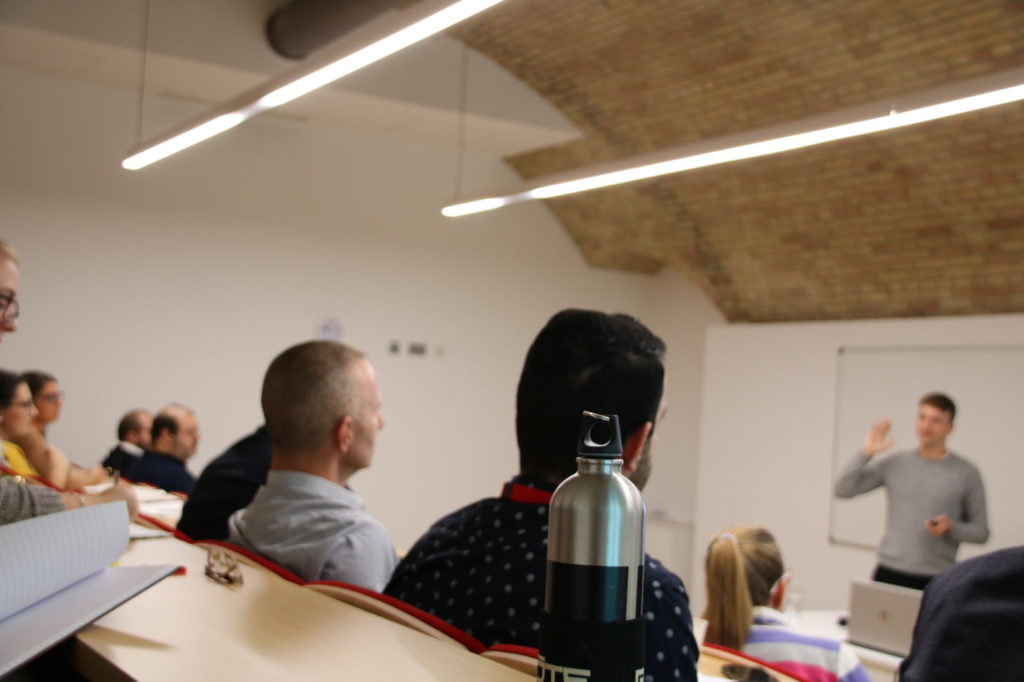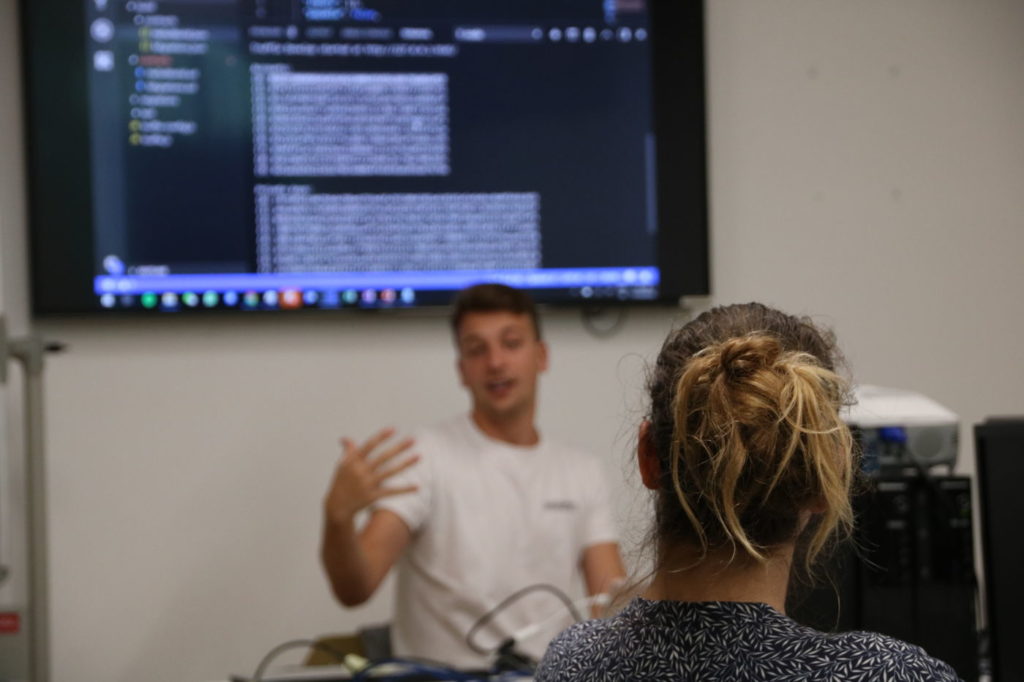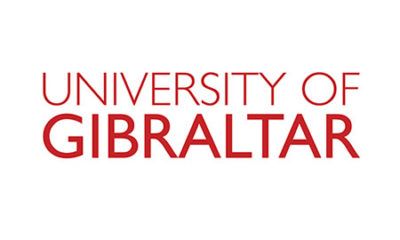The University of Gibraltar’s cutting edge blockchain course, the Professional Certificate of Competence in Blockchain and Smart Contracts, is scheduled to start on 17th February 2020. Nicolás Collebechi is one of the international team delivering the University of Gibraltar’s latest blockchain technology course. He is an expert in cryptoeconomics and digital marketing. He took part in a question and answer session with Fintech.gi about the course and about blockchain technology in general.

Nicholas Collebechi, Tutor at University of Gibraltar, Professional Certificate of Competence in Blockchain and Smart Contracts
What is blockchain technology and why is it important for people in a variety of businesses to learn about it?
It’s important to make a distinction between public and private blockchain proposals. Simply put, a public blockchain is a time-stamped series of immutable records of data that is managed by a cluster of computers not owned by any single entity. Each of these blocks of data (i.e. block) is secured and bound to each other using cryptographic principles (i.e. chain). On the contrary, private blockchains are controlled by entities and the data layers can have many different restrictions.
Blockchain technology provides governments, organizations, companies and individuals with the possibility to explore multiple use cases on almost any industry with the added benefits of the immutability of records within a blockchain. This provides a data framework that increases end-users trust.
DLT is much bigger than just cryptocurrency – is crypto a large part of the focus of the course and are there likely to be future courses on other uses of the blockchain?
On the course, we actually discuss many different use cases. Digital assets acting as store of value is just one of the many uses that this technology can provide. On the course we cover different use cases which will help students easily understand how this technology is currently being used or explored by governments and regulators as well as the banking, gaming & digital marketing industries. We will also show some examples of blockchain for social impact. As an economist, this last aspect is the one that I believe can have the biggest positive impact on societies.
Regarding future courses, we are analyzing the possibility of delivering specific courses for people interested to specialize in some specific areas within the blockchain industry.

Image credit: University of Gibraltar. Image from 2019 course
What are the benefits to businesses of adopting blockchain technology and using smart contracts?
Further transparency for end-users, organizations and companies without a doubt. Just to give you some tangible examples, many companies are using or exploring blockchain technology to provide end-to-end traceability on the food production, shipping and pharmaceutical industries. Blockchain technology can also help companies and governments to decrease operational costs on some specific situations while at the same increasing end-users confidence.
We have a reasonable grasp in Gibraltar that blockchain technology is opening up new pathways and new opportunities for businesses, and that it has triggered global changes in some traditional sectors such as financial services that are changing the way business works. But in the business world there is scepticism and a degree of reluctance to adopt the technology. Why might this be, and why, in your view, are courses of this nature important for the local economy?
Disruptive technologies have always been rejected on their first stages along history. When it comes to blockchain in particular, I believe that non-specialized public only relates digital assets as direct competition to fiduciary money. That´s a great misconception. A digital asset that represents a different form to store value is just one of the many multiple use cases of blockchain technology. There are hundreds of interesting use cases based on blockchain technology that were not designed to act as store of value at all. Moreover, many governments and organizations around the world have been exploring for many years now the implications that CBDcs (central bank digital currencies) would have on central banks, monetary policy, comercial banks and end-users. Finally, some of the most important governments, industries and companies around the world have exponentially increased their interest on blockchain technology in the last five years with use cases that have no relationship whatsoever with store of value.
Courses like the one offered at the University of Gibraltar are incredibly valuable to help students in the learning process. Understanding blockchain technology and its multiple use cases can be overwhelming for anyone without prior experience on the industry. The whole goal of the course is to make the learning process as easy as possible for students in a complex subject.
Regarding Gibraltar´s local economy, I believe that the government, banking and gaming sectors can probably find different productive use cases for this technology.
Is blockchain technology useful for all businesses or does it depend on what your business is?
In my opinion, it depends on each business. There are some clear situations where blockchain technology can without a doubt provide huge benefits for an industry or business. On other cases, privacy concerns, regulatory frameworks and associated costs can deter businesses from implementing blockchain solutions. Each case and industry is different.
Are there evident skills gaps that this course is aiming to address and for whom might the course be most suitable?
This course is specifically designed for people willing to understand the potential of blockchain technology. It is an introductory course which has been specifically designed to help everyone taking its first steps with this technology. There is a slow and long learning curve when it comes to blockchain technology. This course will help students speed up the learning process exponentially.

Credit: University of Gibraltar, Image from 2019 course
Details about how the course is to be delivered and what you are hoping to achieve from this course would be great, please.
This certificate is a level 4 award, which in academic terms falls within first year degree level. It is an assessed qualification, comprising of two multiple choice tests and a 1000 word group assignment which is supported by a group presentation. This course will take the attendee to an intermediate level of knowledge and understanding. Upon successful completion, they will be awarded with a Professional Certificate of Competence in Blockchain & Smart Contracts which is issued by the University of Gibraltar.
Is the certificate of competence accredited by external accreditation bodies and can professionals use it as evidence of CPD?
This course is not certified by the CPD Certification Service. This is a qualification at level 4, meaning that there are rigorous assessments to determine having achieved learning outcomes. Simply put, this is a more formal and in-depth course.
For those who successfully complete the course, where does it lead? Will there be follow up courses?
Upon completion of the course, students will have a very precise and complete idea of which are all the main areas within the blockchain industry. They can choose to specialize with more specific courses on areas such as a programming, cryptography, marketing, compliance and regulation, tokenomics, etc. As mentioned before, we are analyzing the possibility of delivering specific courses for people interested to specialize in some of these specific areas.
About Nicolás Collebechi
Nicolás Collebechi is an economist who has been working in the digital industry for more than two decades helping many companies to develop and optimize their digital strategies. He currently spends his time working on his own projects, consulting and has been teaching economics, digital marketing and ecommerce to postgraduate students all over the world for over a decade.
To find out more about the University of Gibraltar’s Professional Certificate of Competence in Blockchain and Smart Contracts, follow this link:
Professional Certificate of Competence in Blockchain and Smart Contracts
To apply for the course, follow this link:





